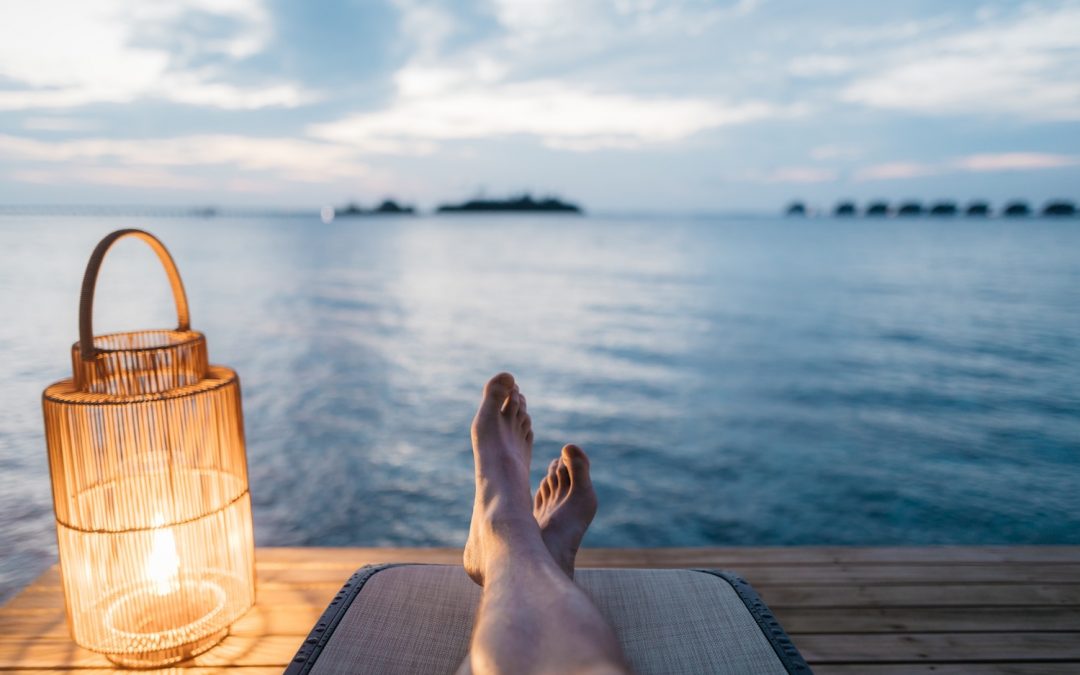In Season 5, Episode 10 of his podcast, author and productivity expert Michael Hyatt shared the experience of taking his three daughters to Disney World in the middle of summer.
“It was hot, crowded, and miserable,” he recalled. “When I came home from that vacation, I was totally exhausted.”
Michael went on to make the point that amusement and recreation are not the same; in fact, they have completely opposite effects on your sense of well-being.
Since we live in a culture that values productivity, accomplishment, and personal drivenness (see this previous post), cultivating healthy rhythms of work and recreation into your lifestyle, while minimizing mindless amusement, can be a real difference maker.
When it comes to amusement verses recreation, here are four simple tests to discern the difference:
1) Amusement often tires you out, while recreation restores you.
Look at the etymology of the word “recreation.” It literally means ” to re-create,” implying an active engagement of the mind and body that is fun, focused, and restorative. But as Michael Hyatt discovered, even well intentioned activities like family vacations can leave you mentally and physically drained.
2) Amusement can be mindless while recreation makes you feel more connected to yourself and to the world around you.
Have you ever sat in front of the TV for hours, remote in hand, flipping through channels without watching anything? How does it make you feel? If you’re like me, I feel unproductive — even anxious. We use language such as “vegging out” to describe such behaviors, which implies disconnection; we’re acting like vegetables — living organisms but with no brains.
3) Amusement is usually unplanned; recreation is intentional.
Think about the things you truly enjoy doing, that when you’re doing them you lose all sense of time. Examples may include fishing, playing a musical instrument, exercise, painting, reading, writing, prayer and meditation, gardening, etc. In most cases, activities like these need to be planned for. Amusement, on the other hand, tends to be spontaneous, flowing out of unscheduled or “idle” time.
4) Amusement plays to your weaknesses while recreation enhances your strengths.
I remember the years I spent playing football in high school and college. During the season, when my daily schedule was filled up with classes, practice, and homework, I would tell myself how much harder I will study when the demands of the season are over and my time frees up. But invariably, I squandered most of that “free” time with unproductive things and, instead of improving my grades, they would usually decline. I think this is true for most people — unscheduled, unplanned time frequently flows to our weaknesses. Meaningful recreation, on the other hand, because it contributes to our growth, sharpens us, making us better equipped to handle the stresses of our lives.
Of course, there will always be times when you have to put your own needs aside for the sake of your family or for others. (I’ll bet Michael Hyatt’s daughters felt differently about their Disney experience than he did!) After all, life is not all about us.
Learning to incorporate intentional and repeatable rhythms of recreation into your life while minimizing mindless amusement and idleness can be a game changer, enabling you to inject a fresh sense of passion and purpose into your work and your life.
How do you spend your free time? Have you ever experienced any of these four distinctions between amusement and recreation in your approach to leisure? What would it mean to your life to discover one or two pursuits that energize and restore you?


I think golf is an amusement when it includes me playing!! ? :)
Thanks for the article as I can very well relate and agree.
Great post Bill! I like the difference you spelled out in #4, true for me as well, thanks!